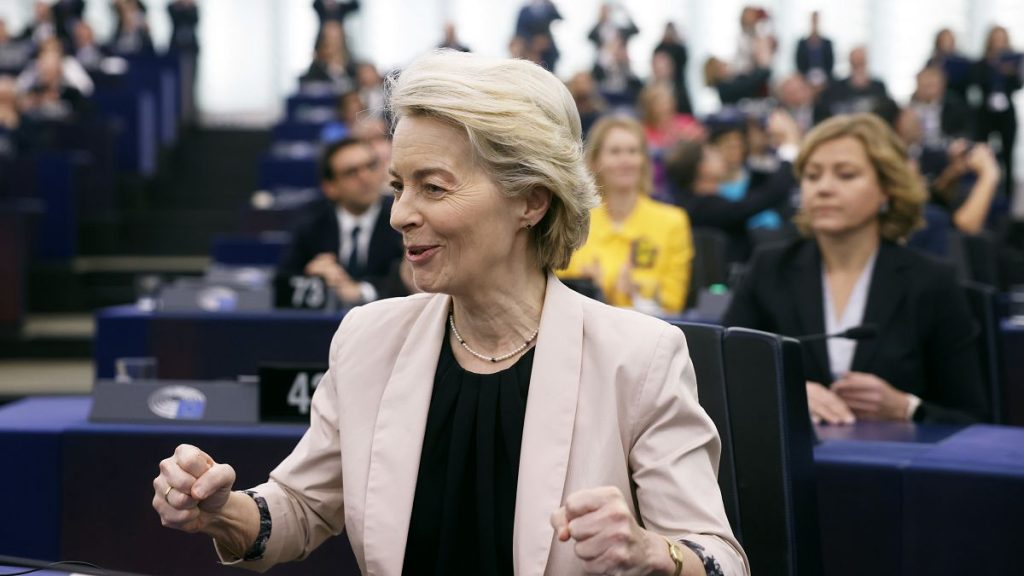Ursula von der Leyen’s Bout with Pneumonia and Transparency Concerns
European Commission President Ursula von der Leyen recently experienced a severe case of pneumonia, requiring hospitalization and causing her to cancel external engagements for the first two weeks of January. While her office initially announced the cancellations on January 3rd, citing "severe pneumonia," the public was not informed of her hospitalization until January 13th, sparking criticism regarding the Commission’s transparency. The delayed disclosure raised concerns about the public’s right to know about the health status of a prominent political leader, especially given the potential impact on her ability to perform her duties.
Pneumonia, a respiratory infection affecting the lungs’ air sacs, can manifest with symptoms like coughing, fever, chills, and breathing difficulties. At 66, von der Leyen falls within a higher-risk category for potential complications from the illness. Despite the severity of her condition, the Commission spokesperson confirmed that she was never on a respirator or in intensive care. She was hospitalized from January 2nd to 10th, during which time she continued to conduct her duties remotely, maintaining contact with her team and addressing essential matters. The Commission spokesperson emphasized that her capacity to lead the Commission was never compromised, though the decision to withhold information about her hospitalization fueled the transparency debate.
The Commission’s communication strategy regarding von der Leyen’s health faced scrutiny. Critics argued that the delayed public acknowledgement of her hospitalization lacked transparency, raising questions about whether the public was adequately informed. The Commission’s defense centered on the argument that they had provided "critical information," including the severity of the illness and the cancellation of engagements, implying the seriousness of the situation. However, the absence of explicit confirmation about the hospitalization until much later intensified the debate. This incident highlights the delicate balance between protecting an individual’s privacy, particularly regarding health matters, and the public’s right to information about their elected leaders.
Despite the controversy surrounding the communication of her illness, von der Leyen is recovering well and is expected to resume her official duties shortly. She is anticipated to participate in the World Economic Forum in Davos next week and attend the European Parliament’s plenary session in Strasbourg, indicating a return to her full schedule. This signifies a positive development, allowing her to re-engage with crucial international and European affairs. The incident, however, underscores the importance of clear and timely communication in matters of public interest, particularly those concerning the health of high-ranking officials.
The episode serves as a reminder of the increasing scrutiny placed on public figures, especially in the digital age where information spreads rapidly. The demand for transparency extends beyond policy decisions to encompass personal matters, particularly those affecting an individual’s ability to fulfill their responsibilities. While respecting privacy remains essential, striking a balance between privacy and the public’s right to know is crucial for maintaining trust and accountability. The incident highlights the challenges faced by organizations in navigating these complex issues, particularly in an interconnected world where information is readily accessible and public expectations for transparency are high.
Von der Leyen’s case illustrates the challenges of transparency in leadership, highlighting the delicate balance between personal privacy and public interest. While recovering from a serious illness, she continued to manage her responsibilities, demonstrating resilience and commitment to her role. However, the delayed disclosure of her hospitalization underscores the need for more open communication, even in matters considered private. This incident serves as a valuable lesson for organizations and public figures alike, emphasizing the importance of proactive and transparent communication in maintaining public trust. The public’s response to the situation underscores the importance of clear and timely communication, especially in matters concerning the health and well-being of those in positions of power. This incident is likely to shape future communication strategies within the European Commission and other similar organizations, prompting a greater emphasis on transparency and proactive information sharing.














